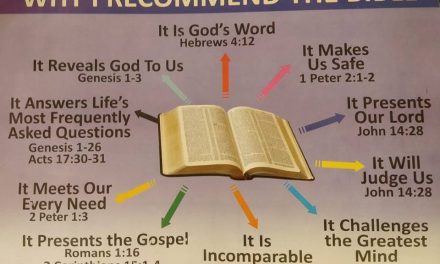Nigeria’s 2023 Presidential election would remain where ethnic and religious sensitivities play a role not only between a largely Muslim north and mainly Christian south but also with hundreds of different ethnic groups. This election calls for the leadership of Nigeria’s first international denomination, the Methodist Church Nigeria, to give direction to the body of Christ in Nigeria to overcome our divisiveness. To do this, Methodist Church Nigeria, as a spiritual microcosm of Nigeria, needs a corporate and collaborative ministry and episcopacy above tribal and ethnic sentiments and a degeneration into a ‘fractious collection of sects and tribes.’ As it is obvious nationally, the Church, as counter-cultural, is sent not to promote “parties” within its ecology but to be missionally effective, pastorally attentive, and faithful in prophetic engagement.
The Church is called into the business of bridging the eternal and the temporal, bringing the ineffable and uncontainable into the day-to-day reality of human life and experience, telling the ‘old, old story’ and re-living the truths once revealed to the saints. Bishop Humphrey Southern, the Principal of Ripon College, Cuddesdon, United Kingdom, in his lecture last week at the Ecclesiastical Law Society, London, titled “Called on the Mountain to serve on the Plain – Priorities for Ministry Formation” said, “This ecclesiastical instinct, to institutionalise and concretise passing moments of insight and gift, so that they may be reliably connected with and re-lived, is the instinct that lies behind much of what the Church does and has achieved over the two millennia of its existence.” The instinct ‘drives the evolution of sacraments and scriptures, holy spaces and buildings, structures in word and community, wood and stone and liturgy – and, indeed, ecclesiastical law in its various forms.’
A collaborative ministry and episcopacy are shaped by missional engagement. This is about ‘the Good News impacting on human life and the life of the planet – is central to the purpose and calling of the Church and central, too, to how the Church sets its priorities and looks to its sources of authority. The purpose of that instinct to capture and preserve, to communicate and hand on that which God has given – the instinct that has given us scriptures and sacraments and so much of the essential paraphernalia of the Church – is, therefore, entirely missional.’ Collaborative ministry and episcopacy have stories to tell, lives to be transformed, and salvation to experience.
Corporate episcopacy has not only been our watchword and practice in the Methodist Church Nigeria for over forty years. However, there has been silent and loud lament about its collective impact among the laity and ordained ministers for an equally long time. Humphrey right tells us that the twin enemies of collaborative ministry, which resonates with episcopacy ‘would seem to be the evils of clericalism and tribalism, which see ministry as solely or primarily an activity of the clergy, and so precious that it can be shared only among participants who overlap with each other extensively in terms of theological outlook, religious culture, or (sometimes) downright prejudice.’
Collaborative ministry and episcopacy that promote corporate missional engagement beings with renewing leadership programs and institutions of ministerial formation that are ‘intentionally constructed to counter such attitudes, with trainees and faculty of rich diversity both of approach and vocation (in terms of ministerial order). Working, learning, and (especially in the residential seminary mode) living together with ministers and trainee ministers of great difference, co-operating on activities from planning worship to animating the social life of a community to staffing the local village fête (a specialty of my institution) make for a good grounding for practical collaboration in ministry, better informed by gritty experience than by what is often somewhat romantic theory.’ The reflection is, how are our leadership and training institutions serving well the idea of healthy appreciation of difference within the community of the Methodist Church Nigeria? As a nation, when our leaders and theological training institutions become the product of human tendencies concerning our varieties of theological tradition, ecclesiological preference, liturgical taste, and similar considerations to become tribal, we perpetuate a longer-term besetting church institutional sin and imminent national disintegration.
Collaborative ministry and episcopacy beyond the rhetoric of “good disagreement” are not without ‘varying degrees of enthusiasm or cynicism.’ Nevertheless, our missional mandate as a church to spread scriptural holiness across the land must shape our diverse positions and dispositions without losing our saltiness and lightness.











Recent Comments